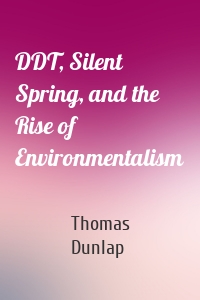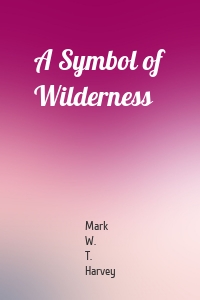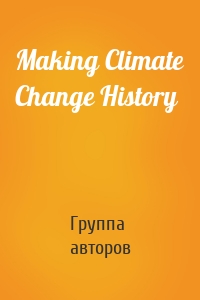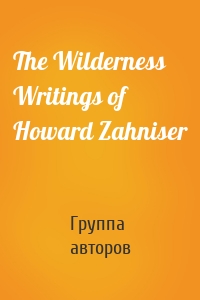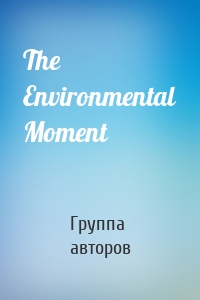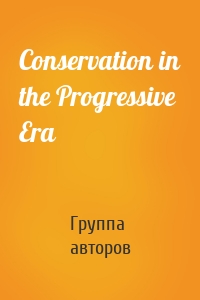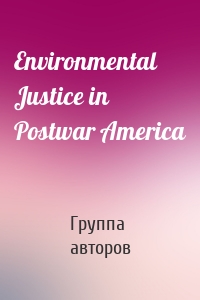Серия "Weyerhaeuser Environmental Classics"
9 кн.Скачать лучшие книги серии Weyerhaeuser Environmental Classics - автор Thomas Dunlap в формате fb2 или читать онлайн, бесплатно и без регистрации. Читаемые, полные версии книг, без сокращений - на сайте Knigism.online. Скачать книги полностью в количестве 9 шт.
DDT, Silent Spring, and the Rise of...
No single event played a greater role in the birth of modern environmentalism than the publication of Rachel Carson's Silent Spring and its assault on insecticides. The documents collected by Thomas Dunlap trace shifting attitudes toward DDT and pesticides in general through a variety of sources: excerpts from scientific studies and government reports, advertisements from industry journals, articles from popular magazines, and the famous �Fable for Tomorrow� from...
| Автор | Thomas Dunlap |
A Symbol of Wilderness
Harvey details the first major clash between conservationists and developers after World War II, the successful fight to prevent the building of Echo Park Dam. The dam on the Green River was intended to create a recreational lake in northwest Colorado and generate hydroelectric power, but would have flooded picturesque Echo Park Valley and threatened Dinosaur National Monument, straddling the Utah-Colorado border near Wyoming.
| Автор | Mark W. T. Harvey |
Making Climate Change History
This collection pulls together key documents from the scientific and political history of climate change, including congressional testimony, scientific papers, newspaper editorials, court cases, and international declarations. Far more than just a compendium of source materials, the book uses these documents as a way to think about history, while at the same time using history as a way to approach the politics of climate change from a new perspective. Making Climate Change History provides the...
| Автор | Группа авторов |
The Wilderness Writings of Howard Z...
Howard Zahniser (1906�1964), executive secretary of The Wilderness Society and editor of The Living Wilderness from 1945 to 1964, is arguably the person most responsible for drafting and promoting the Wilderness Act in 1964. The act, which created the National Wilderness Preservation System, was the culmination of Zahniser�s years of tenacious lobbying and his work with conservationists across the nation. In 1964, fifty-four wilderness areas in thirteen states were part of...
| Автор | Группа авторов |
Nuclear Reactions
Nuclear Reactions explores the nuclear consensus that emerged in post�World War II America, characterized by widespread support for a diplomatic and military strategy based on nuclear weapons and a vision of economic growth that welcomed nuclear energy both for the generation of electricity and for other peaceful and industrial uses. Unease about the environmental consequences of nuclear energy and weapons development became apparent by the early 1960s and led to the first challenges...
| Автор | Группа авторов |
The Environmental Moment
The Environmental Moment is a collection of documents that reveal the significance of the years 1968-1972 to the environmental movement in the United States. With material ranging from short pieces from the Whole Earth Catalog and articles from the Village Voice to lectures, posters, and government documents, the collection describes the period through the perspective of a diversity of participants, including activists, politicians, scientists, and average citizens. Included are the words of...
| Автор | Группа авторов |
Conservation in the Progressive Era
Conservation was the first nationwide political movement in American history to grapple with environmental problems like waste, pollution, resource exhaustion, and sustainability. At its height, the conservation movement was a critical aspect of the broader reforms undertaken in the Progressive Era (1890-1910), as the rapidly industrializing nation struggled to protect human health, natural beauty, and «national efficiency.» This highly effective Progressive Era movement was distinct from...
| Автор | Группа авторов |
Environmental Justice in Postwar Am...
In the decades after World War II, the American economy entered a period of prolonged growth that created unprecedented affluence�but these developments came at the cost of a host of new environmental problems. Unsurprisingly, a disproportionate number of them, such as pollution-emitting factories, waste-handling facilities, and big infrastructure projects, ended up in communities dominated by people of color. Constrained by long-standing practices of segregation that limited their...
| Автор | Группа авторов |
Reel Nature
Winner of the History of Science Society's Watson Davis and Helen Miles Davis Prize in the History of Science.From the early exploits of Teddy Roosevelt in Africa to blockbuster films such as March of the Penguins, Gregg Mitman's Reel Nature reveals how changing values, scientific developments, and new technologies have come to shape American encounters with wildlife on and off the big screen. Whether crafted to elicit thrills or to educate audiences about the real-life drama of...
| Автор | Gregg Mitman |


